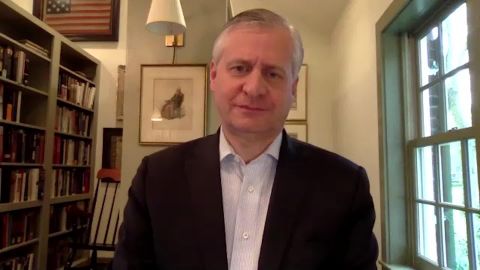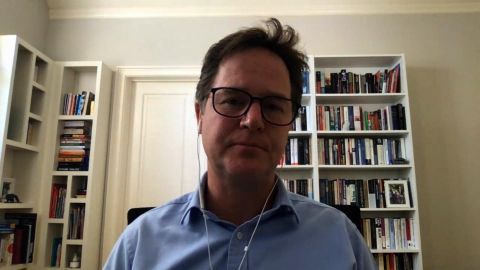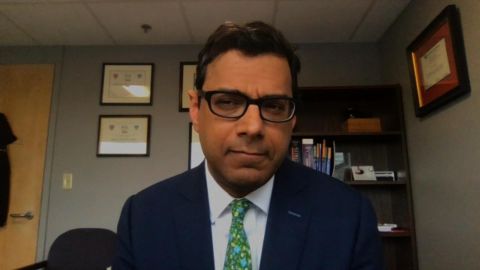Read Transcript EXPAND
CHRISTIANE AMANPOUR: But what happens when they don’t have the special masks? What happens when they don’t have the protective gear? You know, you say what’s going to happen in New York when they, you know, run out is going to happen all over the country. What does that look like? They are going to die? Patients are going to die? What do you foresee?
DR. ATUL GAWANDE, SURGEON, BRIGHAM AND WOMEN’S HOSPITAL: Well, there are a couple of things. One is, it’s a fork in the road, right. In Italy, the hospitals became a source of infection. Where in other places like in Singapore, Hong Kong, South Korea, the hospitals were a protected space where they were able to take care of people and not transmit the infection. I actually think that we’re — we know what worked and here are the basics. Number one, you mentioned hand washing, and that’s critical. We cannot forget that component but that is not going to be enough. Second in Singapore, Hong Kong, South Korea, it was that every worker had masks like these. This is a simple surgical mask. This is not the complicated harder to get particle respirators, particle filtering respirators called N95s. For every day work, you know, we’ve instituted at my hospital here in Boston, Brigham and Women’s Hospital, very early on that all of us would wear masks just like they did in Asia. And the combination of that, hand washing, separating the respiratory patients, those who have respiratory issues, into separate wards, separate clinics, separate teams made a huge difference. And then, finally, making sure that we are keeping six feet away from one another just like everybody else is doing when they’re at home. And that combination meant that there were no transmissions of infections in places like South Korea, Singapore when you’re able to follow those basics.
I’ll add one more thing, which is you do need those heavier duty, bigger deal masks, the N95s, in supply for people who are undergoing surgery. You need the anesthesiologist to be protected when they’re putting a tube into the airway and other people who are sick. I’ll say that the breakthrough thing that’s happened just even today is that a technology out of a group called Batel in Columbus, we got delivered a machine that just uses hydrogen peroxide as a mist to reuse those M95 respirators, it can refurbish and enable 80,000 of those respirator masks for the people in the highest risk situations to be able to protected. I think that kind of innovation is going to keep us ahead of the game here.
About This Episode EXPAND
Dr. Atul Gawande joins Christiane Amanpour to reflect on another week of tragedies and challenges. Nick Clegg, VP for global affairs and communications at Facebook, discusses the spread of false and dangerous information. Presidential historian Jon Meacham dissects the performance of President Trump in the COVID-19 crisis. David Beasley discuses his experience falling ill with the virus.
LEARN MORE



